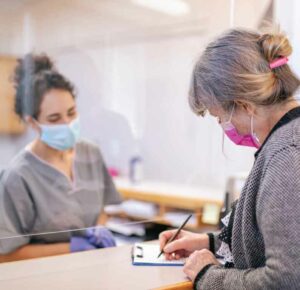Medicaid Expansion Positively Affects Oral Health
A University of Michigan (U-M) study suggests that Medicaid dental coverage can improve the oral health of low-income individuals enrolled in the program in ways that help with their work and job searches.

A University of Michigan (U-M) study suggests that Medicaid dental coverage can improve the oral health of low-income individuals enrolled in the program in ways that help with their work and job searches. Published in the Journal of Public Health Dentistry, findings from the paper, “Beneficiaries’ Perspectives on Improved Oral Health and its Mediators After Medicaid Expansion in Michigan: a Mixed Methods Study,” can help inform policy decisions about the benefits of providing Medicaid dental coverage.
Researchers from the U-M’s Institute for Healthcare Policy and Innovation used a survey and interviews to assess the impact of dental coverage provided to low-income residents enrolled in the state’s Healthy Michigan Plan. This plan provides basic dental services for residents who have an income at or below 133% of the federal poverty level. The team found 60% of the 4,090 enrollees surveyed had visited a dentist at least once since enrolling in the Healthy Michigan Plan 1 year or 2 years earlier. Among those who saw a dentist in that time, 57% said their oral health had improved since enrolling. In addition, 40% of all survey respondents, with jobs or without, stated their oral health had improved since they enrolled.
Of those who were unemployed and reported improved oral health, 59.9% said the coverage helped them when looking for a job. Beneficiaries who had jobs and noted oral health improvements were more likely to report the plan’s coverage improved their job performance (76.1%), compared to 65% who were employed but had not experienced improved oral health.
From Dimensions of Dental Hygiene. May 2021;19(5):9.

